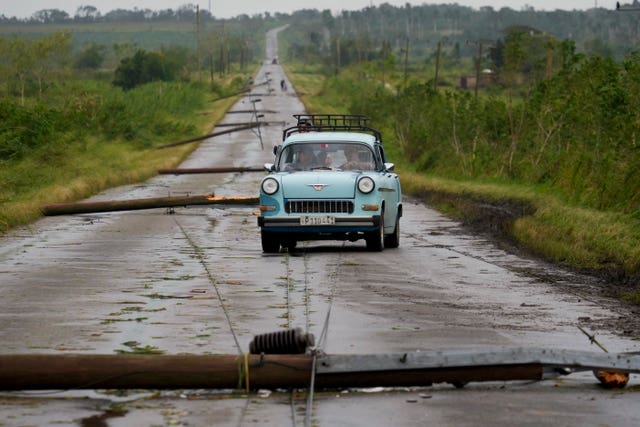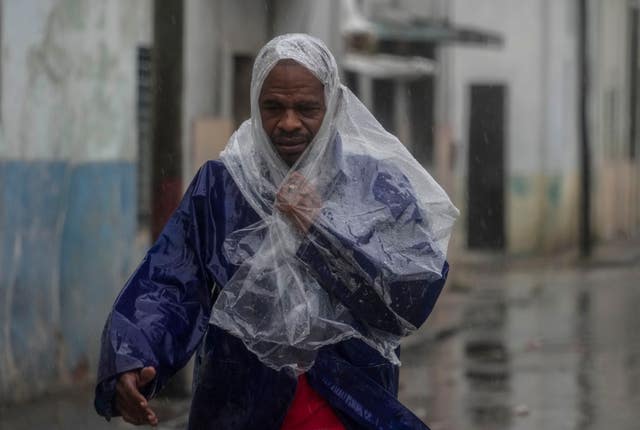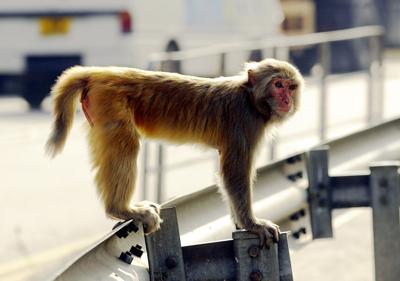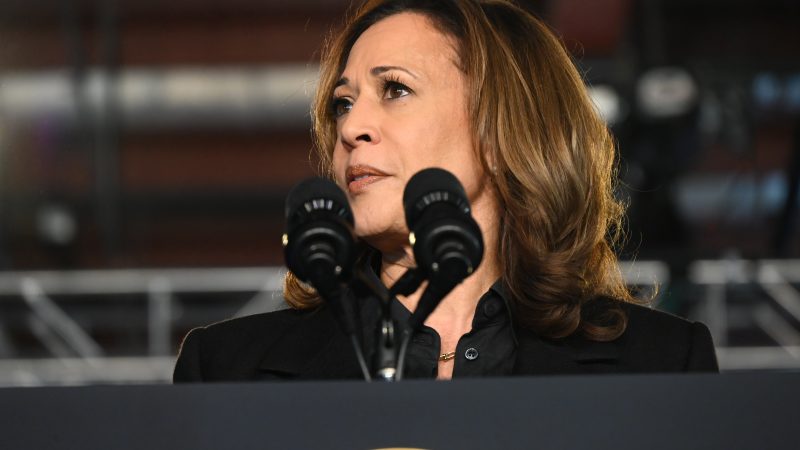Emissions from private jets are skyrocketing. Monitoring them is about to get much harder

Private jet travel has increased dramatically at Van Nuys Airport, which was originally designed for propeller craft only but now has a tremendous amount of private jet traffic. A jet taxis to take off from the airport in 2022.
(Carolyn Cole / Los Angeles Times)
Carbon dioxide emissions from private jets have increased by 46% in the last five years, according to a study published Thursday in the journal Nature Communications Earth & Environment.
The researchers analyzed over 26,000 airplanes and 18 million trips — representing most private flights between 2019 and 2023 — and found that more than two-thirds of all private jets were based in the U.S.
“I think [the paper] is going to be a benchmark for future studies,” said Christopher Jones, a carbon footprint researcher and director of the CoolClimate Network at UC Berkeley, who was not involved in the work. “They have really interesting analysis on where people are flying ... It’s a really interesting paper — thought-provoking.”
The researchers also found that 291 of the flights were to the 2023 COP28 climate conference, releasing a collective 3,800 tons of carbon dioxide.

As Musk seeks to launch tens of thousands of Starlink satellites, space researchers urge caution
Around the turn of the century, the Federal Aviation Administration pioneered the technology that allows researchers to track private jets — but now, the agency is allowing aircraft operators to obscure their ID, which could potentially make similar studies impossible.
“We’ve been lucky to do this study now,” said Stefan Gössling, the lead author and a professor of tourism research at Linnaeus University in Sweden. The current availability of comprehensive data motivated Gössling and his colleagues to undertake the first-of-its-kind assessment of global private jet travel.
With the U.S. aiming to achieve net-zero greenhouse gas emissions in its aviation industry by 2050, the study authors say the results demonstrate the need for increased regulation.
However, since private jets make up only a fraction of a percent of total greenhouse gas emissions, Jones says the issue is ultimately more of a moral concern about wealth inequity than a pressing front on the race to a carbon-neutral world.
“Their personal carbon footprints ... don’t add up to as much as you think,” Jones said. “There’s only so much food, so much stuff and houses and flights you can take in a year.”
“It gets people very upset to think of these rich individuals flying around with no regard to their carbon footprint. I think it deserves some attention, but also it may be a distraction from some of the much bigger problems out there,” he said.
Air travel emissions come disproportionately from the well-off. A premium class seat is responsible for releasing five to nine times more carbon than an economy class seat.
And private jets — used by only 0.003% of the population — accounted for almost 2% of the industry’s emissions. The worst offenders, Gössling says, can pollute 550 times more than the average person in a given year through private jet travel alone.
Although the study did not assess the cause of the increase, others have found the COVID-19 pandemic has played a significant role, as wealthier individuals, hoping to avoid potential exposure to the disease, opted for private flights instead of commercial.
The study authors also note that reducing emissions is particularly difficult amid continued growth in economic output and wealth.
Weaning planes off carbon-based fuel would be far more difficult than for cars. Right now, batteries are simply too heavy to power commercial and private airplanes.
Instead, the FAA says achieving this will require developing airplane technology that emits less, reducing the amount of fuel burned through better air traffic management, and ultimately investing in carbon capture technology to offset the unavoidable emissions.
Although emissions from private aviation make up only a small fraction of total emissions for all sectors across the globe, Gössling says holding the ultra-wealthy accountable is still important.
“I’ve already heard a great number of people saying, ... ‘It’s not even, say, half of Denmark’s annual emissions. It’s tiny,’” he said.

NASA launches Europa Clipper to see if Jupiter’s icy moon has ingredients for life
“But if what the 1 percent — or the very tiny fraction of people able to travel on private aircraft — is doing is not relevant, then obviously nothing is relevant because everybody else will just point at this tiny group and say, ‘Look, they are polluting much more than I do.’”
In recent years, private jet owners and passengers have come under increasing scrutiny.
Many countries require that aircraft publicly broadcast their location in order to coordinate air traffic control, which has allowed companies like FlightAware and private citizens to report the locations of specific planes — and scientists to analyze their emissions.
In 2020, a high schooler created an automated account on X, known then as Twitter, that tracked Elon Musk’s private jet. He went on to create accounts for Mark Zuckerberg and Taylor Swift as well.
The result was an onslaught of social media criticism of the billionaires and memes about their excessive travel. During the 2024 Super Bowl, X users followed the drama as Swift raced from a show in Tokyo to the Las Vegas stadium (after a layover at LAX) with just 14 hours in between the two events.
The previous Super Bowl drew in 200 private jets to the Phoenix area, according to the new study. The Cannes film festival pulled in almost 650, and the FIFA World Cup attracted over 1,800.
It wasn’t uncommon for jets to travel to multiple events, either. Two Super Bowl-goers also attended COP28, and 61 jets at the climate conference also traveled to Cannes.
The increased focus and visibility of private jets has led to backlash among their passengers.
Both Musk’s and Swift’s teams threatened legal action against the creator of the jet trackers, Jack Sweeney, for violating their privacy.
The push for privacy led the FAA to introduce a new feature that allows U.S-registered aircraft to obscure their identity in 2019.
The move — if adopted en masse by the private aircraft — could block scientists like Gössling from determining what model aircraft it is — which researchers need to calculate carbon dioxide emissions.
As of April, the study authors say, 283 aircraft were currently obscuring their identity, representing roughly 1% of the private jet fleet.
But Sweeney — who has linked certain planes to celebrities by assessing the aircrafts’ paint jobs, aligning flight paths to public schedules and finding gaps in the FAA’s privacy measures — remains undeterred. “Put simply, it will not ... stop the tracking,” he wrote on X.










